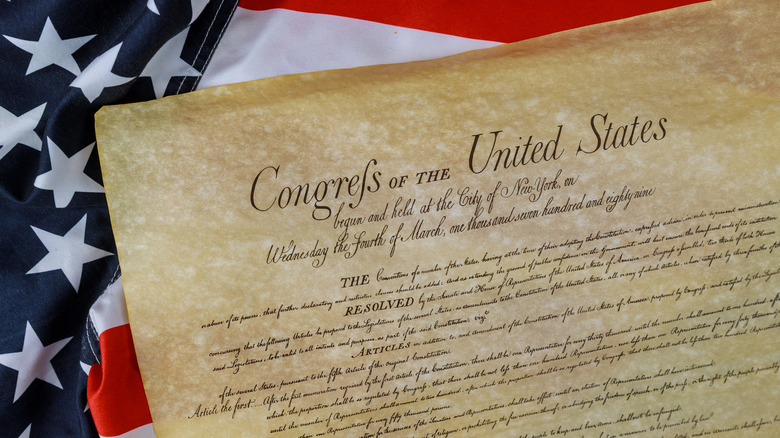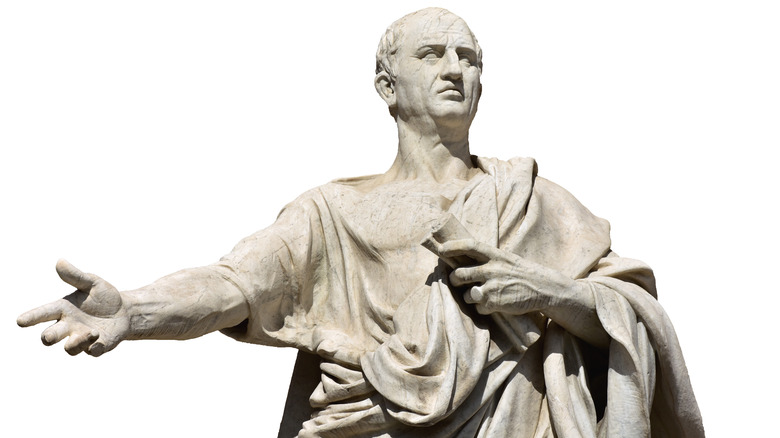Why Benjamin Franklin Fought To Make Impeachment Part Of The US Constitution
TIME states that an impeachment is a written, formal accusation of crimes committed by a sitting American president. Americans have heard quite a bit about impeachment over the past decade. The House of Representatives voted to impeach President Donald Trump in 2019 for possible conversations with Ukraine to investigate Joe Biden and his son Hunter Biden. Congress acquitted him in February of 2020 (per BallotPedia), but impeached him again in 2021 with charges of preventing the peaceful transfer of power and inciting the violence at the Capitol on January 6th, 2021. This makes him the only United States president to be impeached twice.
President Bill Clinton was impeached in the late 1990s and President Andrew Johnson was impeached shortly after the Civil War. No impeachment has ever led to the federal government removing a president from office, as Trump, Clinton, and Johnson were all acquitted of the criminal accusations that led to their impeachments (per TIME). As with most aspects of the U.S. government, impeachment is in the Constitution, and interestingly, a man who was never president had a hand in making it part of this governing document.
Benjamin Franklin wanted a way to accuse a president of crimes
The Constitutional Convention in 1787, wherein influential men like James Madison, Alexander Hamilton, and George Washington created a governing document for the new United States of America. The convention took months as the delegates from each state debated what to include. Benjamin Franklin advocated for a way to accuse a sitting president of misconduct (impeach the president) and punish or acquit just like all other Americans. In other words, he wanted the Constitution to allow Congress to remove a president who had "rendered himself obnoxious." Franklin argued that the only alternative to impeachment would be assassination. He felt that assassination would not only rob the president of his life, but also take away the president's "opportunity of vindicating his character" (per Smithsonian).
The ability to impeach and put a governing leader on trial existed even in the Roman Empire. Famous orator Cicero told the Roman Senators that government officials should be held to the same standards of law as ordinary citizens. He believed equality under the law was necessary for the empire's reputation.
Impeachment was part of Roman law
Impeachment is not the only part of Roman government from which the United States has taken inspiration. Stanford University states that Rome had separation of powers in its government, as does the U.S. with the legislative, executive, and judicial branches of the federal government. Even the word "senate" comes from the word that the Romans used for their governing body.
Congress can impeach a president if they believe that the president has committed acts of treason, bribery, or "other high crimes and misdemeanors." The writers of the U.S. Constitution wanted impeachment to be a "safeguard of the public trust, the powers of government conferred upon the president and other civil officers, and the division of powers." Leaders of the new country also recognized that the role of the president was different from the monarchial system that they had known from the British. A U.S. president was also an American citizen who cannot be above the law (per Washington Post).


